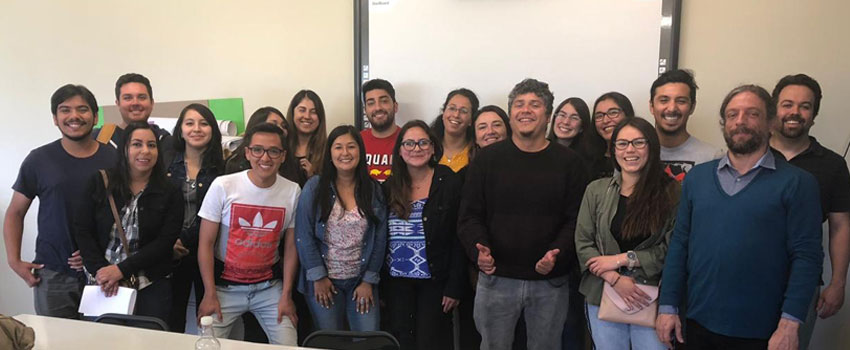
The meeting was held within the framework of the III Summer School of the career of Pedagogy in Chemistry and Natural Sciences of the Buenos Aires house of studies.
At the beginning of January, students from the ULS Biology and Natural Sciences Pedagogy and Chemistry and Natural Sciences Pedagogy careers visited the Chemistry Institute of the Pontificia Universidad Católica de Valparaíso, with the purpose of participating, for the first time , from the Summer School organized by the Buenos Aires educational institution.
On the occasion, the students, who were invited by Dr. Cristian Merino, an academic from the Didactics Laboratory of the PUCV Institute of Chemistry, participated in two free workshops, one called "Design of school scientific projects in natural sciences", directed by professors Joyce Maturana and Carlos Duque, and the other titled "How to elaborate scientific narratives?", by the prominent specialist in Science Didactics, Dr. Agustín Adúriz-Bravo, from the University of Buenos Aires.
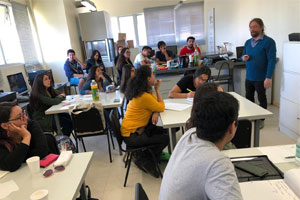 The students in training received the support of the teachers of the Department of Biology, especially from the coordination of the Pedagogy in Biology and Natural Sciences career, "specifically from the teacher Francisco López, who made the pertinent coordination to get to the meeting and be able to participate of this training day,” said the future ULS professional, Pablo Núñez.
The students in training received the support of the teachers of the Department of Biology, especially from the coordination of the Pedagogy in Biology and Natural Sciences career, "specifically from the teacher Francisco López, who made the pertinent coordination to get to the meeting and be able to participate of this training day,” said the future ULS professional, Pablo Núñez.
“We consider the experience as a learning opportunity that brings us closer, in specific aspects, to the context of the real classroom that we must face in teaching practice. Through these instances we channel common elements of our training and socialize them with other practicing teachers and teachers in training, with the aim of establishing general guidelines regarding the teaching and learning of science and its challenges in the current school context. the students explained.
According to the students present in the training and the experts, the themes, the development of school scientific projects and the elaboration of scientific narratives are essential in initial training and, in turn, didactic resources of high pedagogical value that must necessarily be acquired. for science teachers who face a great challenge when teaching science in today's school.
Source: DEIP

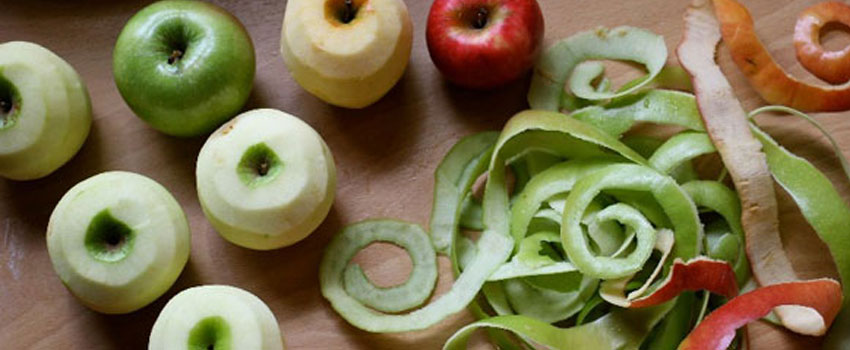
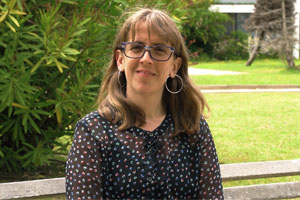 To finance this project, Dr. Bernal was awarded one of the funds from the FONDECYT Regular 2019 Contest (National Fund for Scientific and Technological Development) that this year was given to researchers from the Coquimbo Region, which is highly competitive and currently represents the main source of financing for scientific research in Chile.
To finance this project, Dr. Bernal was awarded one of the funds from the FONDECYT Regular 2019 Contest (National Fund for Scientific and Technological Development) that this year was given to researchers from the Coquimbo Region, which is highly competitive and currently represents the main source of financing for scientific research in Chile.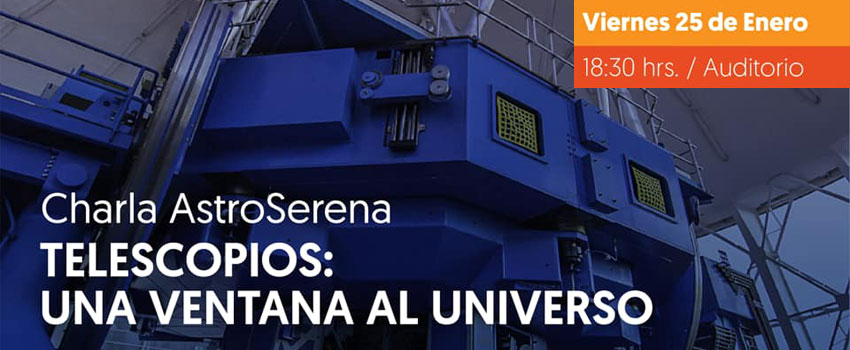
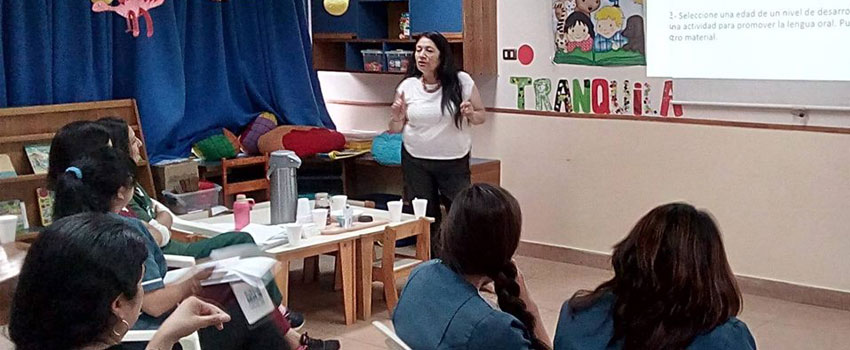
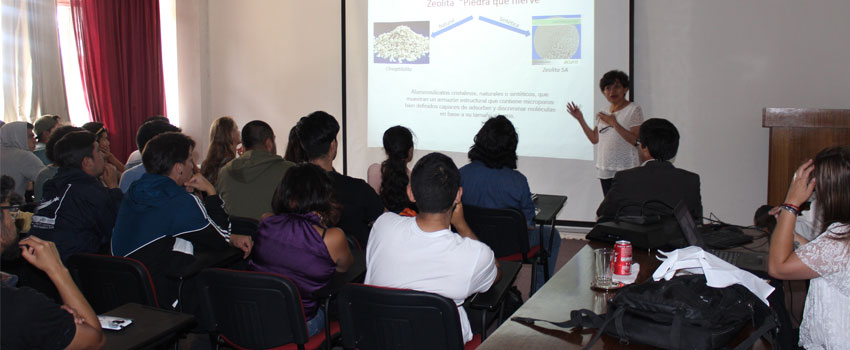
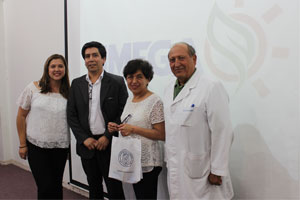 On the occasion, the researcher, who met with a group of academics from the University of La Serena, including Dr. Adriana Mera, who organized the visit of the Mexican expert, spoke about the importance of Zeolites and what they are. their varied applications in the environmental and industrial world, taking into consideration that they are extremely attractive materials, due to their structure and properties.
On the occasion, the researcher, who met with a group of academics from the University of La Serena, including Dr. Adriana Mera, who organized the visit of the Mexican expert, spoke about the importance of Zeolites and what they are. their varied applications in the environmental and industrial world, taking into consideration that they are extremely attractive materials, due to their structure and properties.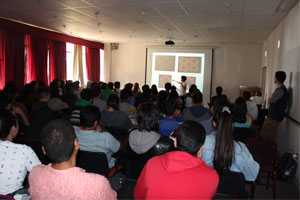 It should be noted that this is the first time that Dr. Sánchez visits our country, expressing that she is very satisfied with the relationship she has established with Dr. Mera, who has been rigorous in the way she works and has carried out mutual collaboration in related aspects. to the study area. She also noted that they will continue to work together and maintain ties to carry out future studies.
It should be noted that this is the first time that Dr. Sánchez visits our country, expressing that she is very satisfied with the relationship she has established with Dr. Mera, who has been rigorous in the way she works and has carried out mutual collaboration in related aspects. to the study area. She also noted that they will continue to work together and maintain ties to carry out future studies.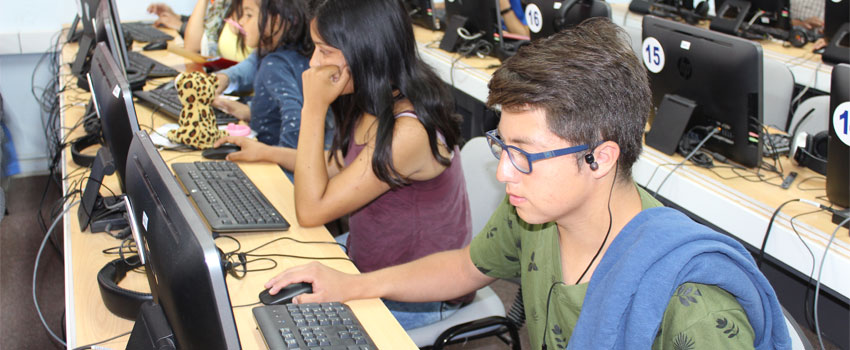
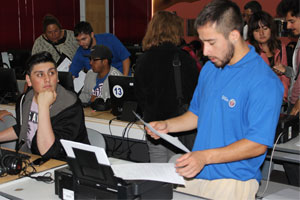 The survey considers questions in areas such as motivation for entering the University, perception of ICT entry skills, sociodemographic characteristics, social development, personal interests, interests and expectations regarding university life.
The survey considers questions in areas such as motivation for entering the University, perception of ICT entry skills, sociodemographic characteristics, social development, personal interests, interests and expectations regarding university life.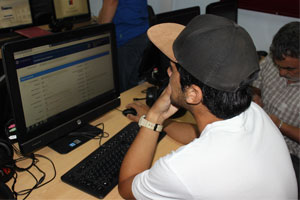 Finally, the University made a laboratory available for those students who for various reasons could not answer the survey; and in the case of doubts and/or queries, they had the support and guidance of professionals and students.
Finally, the University made a laboratory available for those students who for various reasons could not answer the survey; and in the case of doubts and/or queries, they had the support and guidance of professionals and students.